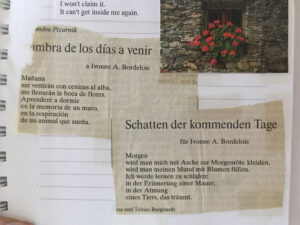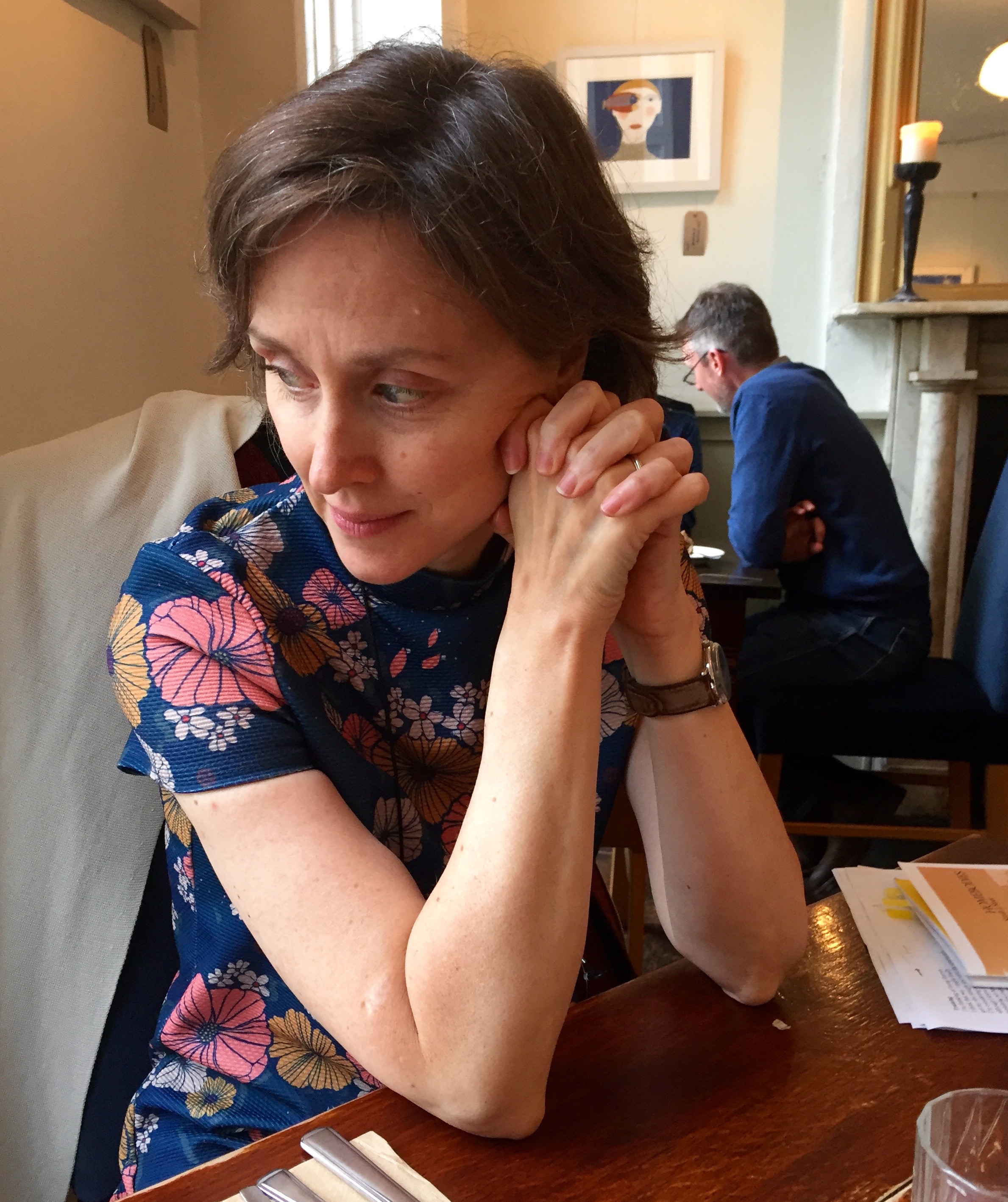Shadow From Days to Come
Tomorrow
they’ll dress me in ash for the sunrise
they’ll fill my mouth with flowers.
I’ll learn to sleep
inside the memory of a wall,
on the breath
of a daydreaming animal.
I’d never read it in English before, but remembered how much it spoke to me when I read it years ago. I’d forgotten the name of the poet, though I think of the poem often, its mystery and images. I had cut it out and taped it in a homemade anthology of poetry I used to take on vacations and long commutes.
I notice in English the animal of the last line is “daydreaming,” whereas in Spanish and German it is simply “dreaming.” I love how the speaker is dressed “for the sunrise” in English and German but my Spanish is not good enough to know whether it should be “for the sunrise” or “at sunrise.” I so prefer “for,” since it suggests doing the sunrise a kind of honor or making a sacrifice for it.
The poem in fact inspired a poem that I wrote, in which someone is also “dressed” in something unusual.
Vestment
On the morning of my ruin
I will dress in a vest of bees
as the sun crimps the sky
and light spreads, tight,
intricate as a honeycomb
over the home I’ve chosen.
The bees will cloak me; goldenly
close they’ll wander me,
those I once feared,
those who seal the suit of mail
no other ruin can sting.
I should have written “after Alejandra Pizarnik.” I do so now! I still love “Shadow From Days to Come” and many other poems in the collection.

2 thoughts on “Shadow from days to come”
I remember that poem of yours! Well, adding that note to it is reason enough for you to publish a full-length collection of your non-erasure poems, methinks. 🙂
Glad you’re liking the Pizarnik. I don’t know why the translator chose to interpret “at dawn” as “for the sunrise” here., or why she decided upon “daydreaming”. In general she reminds me of Robert Bly: always ready to substitute her own ideas for the original poet’s, but a brilliant enough poet in her own right that it almost doesn’t matter.
Maybe sueno is both dream and daydream? In the mind of the English speaker they’re two distinct things. And ‘a’ is probably pretty flexible, as prepositions are. In German the translator did the same thing.
Thanks for reading Dave and for the recommendation!
Comments are closed.